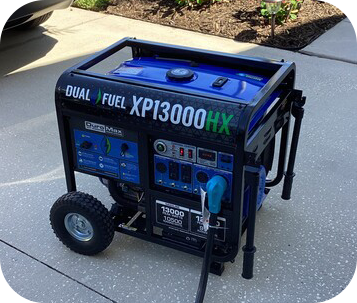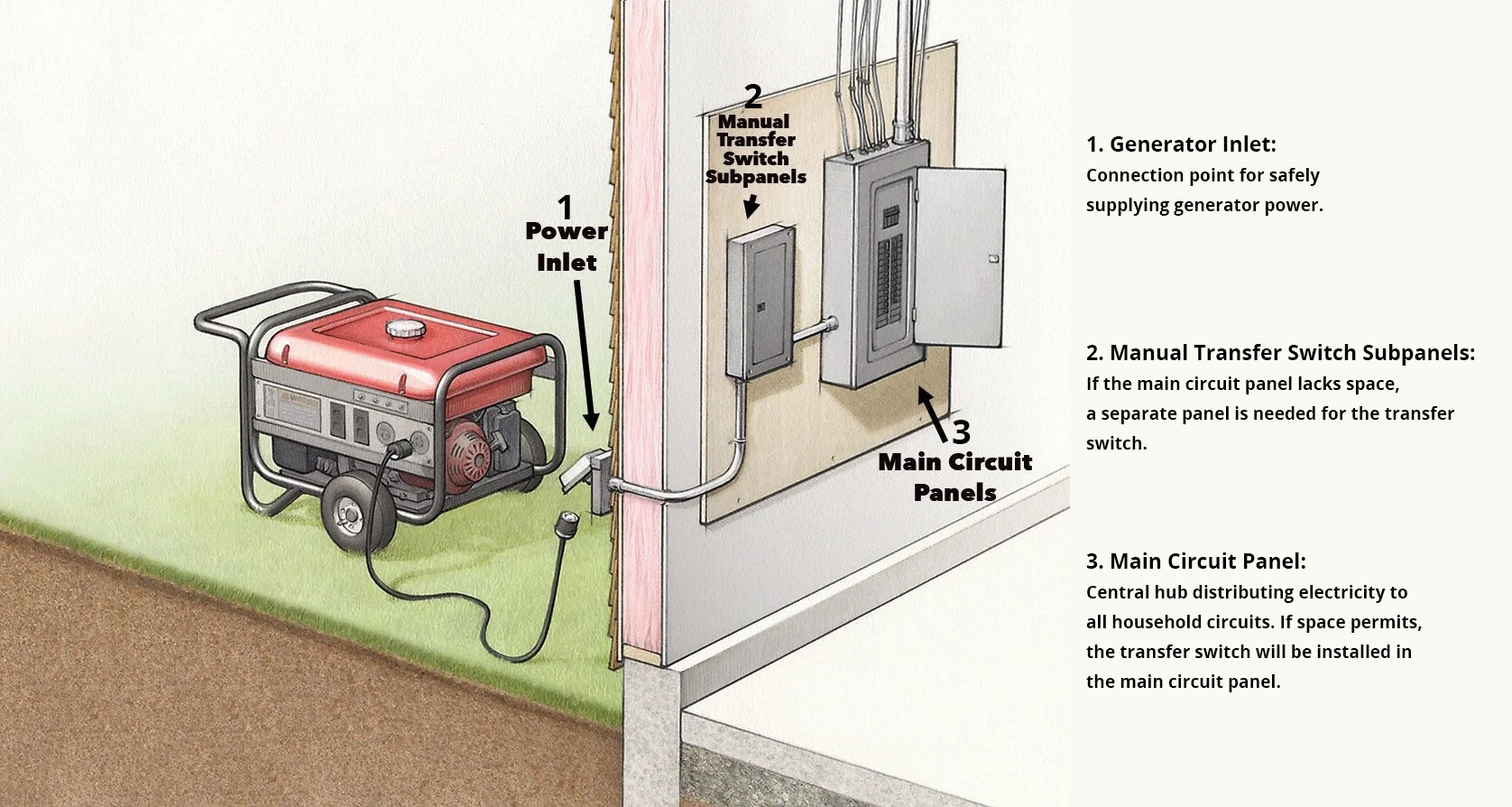GENERATOR BYPASS SYSTEM SERVICES
PROFESSIONAL GENERATOR BYPASS SYSTEM SERVICES
In Florida, owning a generator is essential. When you choose to invest in one, it's crucial to contact your local electrician to explore installing a generator bypass system. This ensures you're well-prepared for storms or power failures. When electricity is unavailable, maintaining vital functions such as climate control, food preservation, and indoor/outdoor security lighting becomes a priority. Generator Bypass Systems work by allowing you to manually switch the home's power - or, more precisely, the specific circuits connected to the transfer switch - from grid power to generator power.

WE OFFER THOROUGH GENERATOR
BYPASS SERVICES, INCLUDING:
Installation
Professional installation of generator bypass systems tailored to the specific needs and setup of the client's property.
Consultation and Assessment
Conducting on-site assessments to determine the most suitable generator bypass system based on the client's electrical infrastructure and requirements.
Upgrades and Retrofitting
Upgrading existing generator bypass systems to meet evolving safety standards or retrofitting older systems for enhanced performance and efficiency.
County Permits & Inspections
We go above and beyond by handling every part of the process, from securing county permits to arranging county inspections.
UNDERSTANDING THE BREAKDOWN OF YOUR GENERATOR BYPASS SYSTEM
The Inlet: The inlet serves as the connection point for your generator, opposite to a regular outlet.
Exploring the Interlock Kit (Bypass System): This crucial component prevents your main breaker from being active simultaneously with the generator's breaker.
Significance of the Bypass System: Incorrect generator operation can be fatal, especially during post-storm scenarios when utility workers are restoring power lines. Without a bypass system, there's a risk of back feeding power, potentially endangering workers and others by sending live electricity back into the grid. Investing in or comprehensively understanding portable generator safety is paramount to safeguard everyone's well-being.
Watch This Video: Step-by-Step Guide to Using Your Generator Inlet
WARNING! Never connect your generator directly to your home's electrical system without using a transfer switch or interlock kit, as required by local electrical codes. Directly connecting your generator like this is known as "backfeeding". It is a dangerous practice that could cause an electrical fire, as well as lead to severe shocks or electrocution for any utility linemen working to restore power to the grid. Always use a transfer switch that has been installed in accordance with all local electrical codes and the National Electrical Code by a licensed professional electrician

FREQUENTLY ASKED QUESTIONS
-
- Prevents Backfeeding: A transfer switch stops dangerous backfeeding, which can energize the grid and harm utility workers.
- Compliance with Electrical Codes: Using a transfer switch ensures adherence to local and national safety regulations.
- Avoids Electrical Hazards: It prevents electrical fires by properly managing the generator's power and isolating it from the grid.
-
Yes, you can run your air conditioner (A/C) with a portable generator, however, it's crucial to ensure the generator can handle the A/C's starting and running wattage requirements. Using a soft start capacitor can help reduce the initial power surge needed, making it more feasible to run the A/C efficiently with a portable generator.
Dive deeper into this topic by exploring our detailed blog post. -
Visit our blog to learn more.
-
Automatic transfer switches (ATS) are used with whole-home standby generators (5-20 kW) that automatically activate during outages. They switch power from the generator back to the grid once restored, usually powering all circuits.
Manual transfer switches, more affordable than ATS, pair well with portable generators rated at least 3,600 watts. Manually start the generator and switch power to selected circuits during outages, then revert to grid power once restored.
Dive deeper into selecting the ideal transfer switch tailored to your needs by exploring our insightful blog article.
-
To connect your generator to your home's electrical system while keeping it isolated from the power grid, a transfer switch is necessary. This device guarantees a continuous power supply to critical appliances and safeguards against the risk of simultaneous electricity flow from both sources. In the event of a power outage, the transfer switch automatically supplies your home with electricity from your generator.
-
A licensed electrician must install the switch to guarantee correct setup and compliance with all electrical codes. This service also requires county permits and inspections, which a professional electrician can arrange for.
Dive into our blog post for a deeper understanding of the importance of licensed electricians.
-
Unfortunately, we do not offer repairs or services for generators. For assistance, we recommend reaching out directly to the manufacturer for their expert recommendations.
NOW OFFERING FLEXIBLE FINANCING
Fast and easy application, applying does not impact your credit, no hidden fees or penalties.

.png)